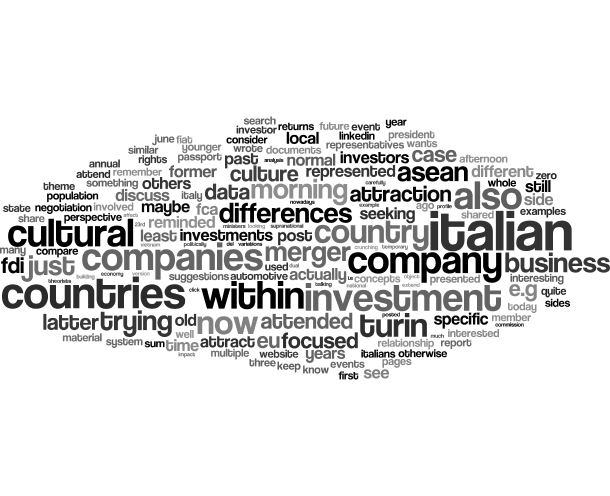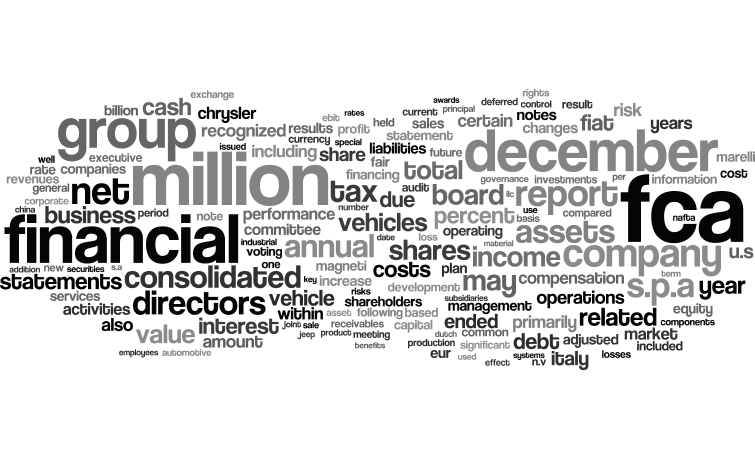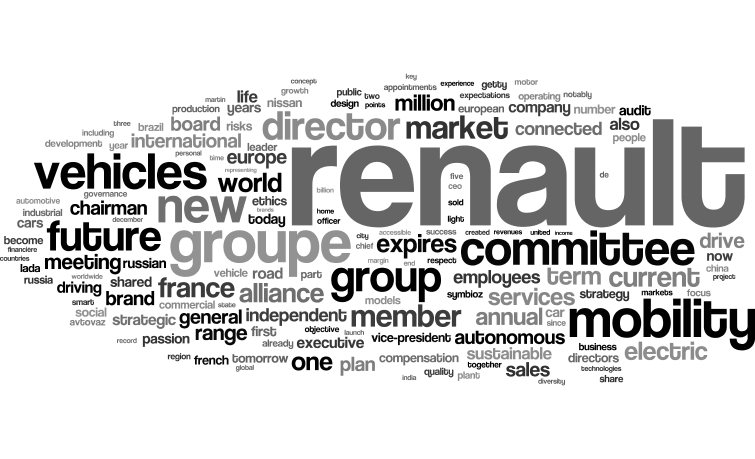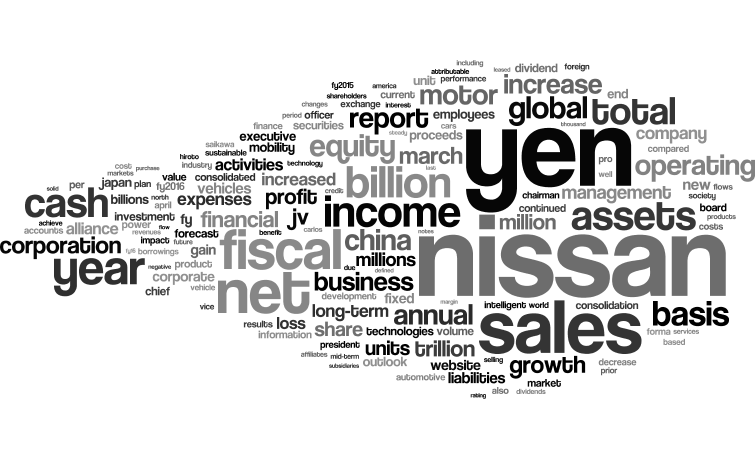Viewed 5156 times | words: 1588
Published on 2019-06-17 21:41:43 | words: 1588

First and foremost: I am sorry to disappoint some of my readers (and some trolls), but in this post I am focusing on cultural differences.
What are cultural differences, and how do they affect behavior and law-making? Or investment choices?
I remember that long ago with others did simply compare what was written within the cover pages of our passports.
E.g. take an Italian passport- I mean the old one, not the EU burgundy version.
And compare it with, say, the old British passport.
Same object, same purpose, different perception of what should those pages be used for.
Now, I wrote few articles in the past discussing the relationship between Turin, Italy, and the company that formerly identified itself with Turin, FIAT (Fabbrica Italiana Automobili Torino), now part of FCA (FIAT Chrysler Automobiles), and maybe soon of a FIAT-Chrysler-Renault-Nissan.
For lack of an official acronym, let's replace the latter with FCAREN, at least for this post.
If you are interested what I wrote about that subject in the past (not just about the merger), click here.
But the title refers to a theme that isn't just related to FCA- e.g. as of today, 2019-06-17, the previous search returns 16 posts, while searching for investment returns 28.
Actually, in this article too I would like to discuss about both issues in terms of “culture”, and extend to the general concept of foreign diirect investment attraction.
If you follow my Facebook profile, maybe you remember when I shared a news item about an Italian biotech company that, as during a negotiation investors said that the Italian rules about shareholders rights were a little bit difficult to understand, set-up shop in another EU Member State, while retaining also the Italian company.
So, “culture” in a business environment extends to both normative and informal elements.
By know, you probably know that whenever I discuss concepts I prefer to use as a shared discussion ground something practical.
On FDI attraction, I will share my feed-back from a conference I attended this morning, #TOASEAN Business Days (you can search on Linkedin- eventually the material shown this morning will be posted on Linkedin; otherwise, you can visit their website).
I will start from the latter, as this will help also to discuss about the cultural side of the FCAREN merger.
Now, in FDI Attraction, it is normal to consider that what you are talking about is blending the culture of the investor with the culture of the country seeking that investment.
I referred in the past few times to an old but still interesting books (also because many forget its lesson) from Kotler&Co, "Marketing Places".
Most of the examples in that book were actually focused on intra-USA examples, but some concepts still are useful- and cultural (and legal system) differences just add more "Goldberg variations" on the main theme.
If you "sit on the fence" of any FDI initiative, while looking from outside at all the sides involved, you will see multiple sets of partially overlapping interests- so, it is quite normal to negotiate a balance.
Now, imagine when you have each side actually working on multiple tables- the investor, trying to make those seeking the investment to outbid each other, and those seeking the investment, trying to "snatch" investments from others.
Obviously, not all investments are "zero sum"- despite what some conspiracy theorists still few centuries behind time assume...
...and, in those case, often pretending that it is a "zero sum" is the best way to extract from all the contendants more favourable conditions.
Today, in Turin, the local Chamber of Commerce (in Italy, membership is compulsory for companies) and local university, with few sponsors, organized a two-days event with six ASEAN countries (Myanmar, Thailand, Indonesia, Malaysia, Philippines, Vietnam); ambassadors, diplomats, and company representatives from those countries attended the event.
I attended similar events abroad involving other countries, so, I did expect a challenge: Italians trying to attract investments or at least business to Turin, and the representatives of the invited countries trying to attract investment in their own country.
Well, the latter was well represented this morning- up to full-fledged de-localization (e.g. by using as an enticement bilateral agreements removing custom duties on specific import categories, both sides).
I did not attend the afternoon sessions, focused on specific industries, and I will not attend tomorrow's face-to-face business meetings where also buyers from companies coming from those countries will meet Italian companies.
Recently, I attended similar events in Turin focused on other countries (e.g. Japan, Korea): as again reminded this morning, Asia (not just ASEAN) is expected to keep growing, and has a population younger than most EU Member States.
Moreover, if you look twenty years into the future.
Cultural differences were for example quoted within the keynote delivered by the Former President of the European Commission and Former President of the Council of Ministers, Professor Romano Prodi.
Or: at a time when misalignments between China and USA would generate incentives to have a more "structural" integration with the EU and within ASEAN countries, the former has already over sixty years of experience on trying to converge, formally and informally, while the latter has a different perspective on surrendering power to a supranational entity.
On the business side, this was represented also by suggestions from Italians operating within ASEAN countries, suggestions focused on reminding how local, physical presence, and building not a website but a relationship being more important than what we are used to.
As reminded also by some pitfalls (intended or otherwise) during the "first round" of the FCAREN merger negotiations, each country has a specific cultural framework of reference.
Politically "high visibility" companies, such as automotive, almost a Critical National Infrastructure for its impact across the whole economy and also the educational system, might have to thread carefully- it is not just a matter of shares or voting rights or share prices.
This morning it was interesting to see how each country presented its own case- some re-balancing as a dual FDI attraction case (i.e. an ASEAN country attracting Italian investors, and viceversa), others following a different track, which reminded of when, many governments ago, an undersecretary of the Italian Government went on Italian State TV, on a Sunday afternoon political talkshow, and...explained why Italian companies should delocalize to Tunisia.
At least, in this case, it was "normal": each country tries to attract investors, and certainly there will be opportunities for Italian companies to manufacture and deliver products to a relatively younger and potentially more affluent population, few years and decades from now.
Now, shifting to the cultural differences between the potential parties involved within the FCAREN merger, I think that I will keep this post short- there will be much more material in the future, during the merger process.
So, as a temporary shortcut, let's consider that, nowadays, an annual report is something more than a mere "rite of passage" that happens year after year- it is a Potemkin Village set up showing how each company wants to present itself.
I selected 2017, and this is how the three companies "presented" themselves to the world.
As each company has its own style, comparing the documents section-by-section makes no sense.
And even merging the three documents would be equally non-sense.
Instead, each document (and the perspective adopted) can be represented by a tag cloud for each annual report.
Here it is FCA:

And this is Renault:

While this is Nissan:

Figures? The glue that keeps the communication bits together, and the whole package represents how the company wants to be perceived by external observers, various levels and "circles" of stakeholders.
And, anyway, I am quite confident that there will be plenty of data published as the negotiation continues, data that will have to be "harmonized".
So, better to wait for those interested to carry out their own "convergence" between the content of their own data rooms
For the time, my only plan for data analysis and number crunching within the automotive industry is linked to the forthcoming AutoExpo in Turin, that will be again held within the Parco del Valentino, from June 19th until June 23rd.
Therefore... maybe see you there!
 _
_